[Part 03]
[Benton Bradberry’s 2012 book, “The Myth of German Villainy” is a superb, must-read, revisionist look at how the German people have been systematically, relentlessly and most importantly, unjustly vilified as the arch criminal of the 20th century. Bradberry sets out, coolly and calmly as befits a former US-Navy officer and pilot, to show why and how the German people have been falsely accused of massive crimes and that their chief accuser and tormenter, organized jewry is in fact the real party guilty of monstrous crimes against Germans and the rest of the world.
In Part 03, organized jewry’s key role in prolonging and turning the war into a global conflict by getting America to declare war on Germany is described. Organized jewry allow the British to turn down peace offers from Germany when they promise to get the US involved provided they receive a British promise (the Balfour Declaration) of an eventual Jewish homeland in Palestine. Prominent American jews instruct their puppet, President Woodrow Wilson to achieve this goal, with Congress declaring war on April 6, 1917.
At the Paris Peace Conference the dominating jewish influence, both official and behind the scenes, is detailed, with organized organized jewry achieving its three principle aims: the creation of the League of Nations as the first step toward world government; the recognition of Jewish “minority rights” in Eastern Europe; and the creation of a British Mandate in Arab Palestine.
Lastly, the history of the thorough jewish infiltration of British aristocracy through marriage, usually of jewesses with landed gentry in financial difficulties, is described — KATANA.]
NOTE: The author has very generously given me permission to reproduce the material here — KATANA.
The Myth of
German Villainy
by
Benton L. Bradberry
Contents
[Clicking on a link in the Contents here will take you to that Part, in a separate post]
[Part 01]
Chapter 1 – The Myth of Germany as an Evil Nation
Germany’s Positive Image Changes Overnight
[Part 02]
Chapter 2 – Aftermath of the War in Germany
The Versailles Treaty
Effect of the Treaty on the German Economy
Was the War Guilt Clause Fair?
Did Germany Really Start the War?
[Part 03]
Chapter 3 – The Jewish Factor in the War
Jews at the Paris Peace Conference
[Part 04]
Chapter 4 – The Russian Revolution of 1917
Bolsheviks Take Control
Jews and the Russian Revolution
Origin of East European Jews
Reason for the Russian Pogroms Against the Jews
Jews Leave Russia for America
Financing the 1917 Revolution
Jews in the Government of Bolshevik Russia
[Part 05]
Chapter 5 – The Red Terror
Creation of the Gulag
Bolsheviks Kill the Czar
Jews as a Hostile Elite
The Ukrainian Famine (Holodomor)
[Part 06]
Chapter 6 – The Bolshevik Revolution Spreads Throughout Europe
Jews in the Hungarian Revolution
Miklos Horthy Saves Hungary
Jews in the German Revolution
The Spartacist Uprising in Berlin
Jewish Bolsheviks Attempt to Take Italy
Jewish Bolsheviks Attempt to Take Spain — The Spanish Civil War
Czechoslovakia in Danger of Communist Takeover
The Comintern’s Aim? World Domination!
[Part 07]
Chapter 7 – The Nation of Israel
History of the Expulsion of Jews
[Part 08]
Chapter 8 – Jews in Weimar Germany
Jews Undermine German Culture
[Part 09]
Chapter 9 – Hitler & National Socialists Rise to Power
The 25 Points of the National Socialist Party
[Part 10]
Chapter 10 – National Socialism vs. Communism
National Socialism
Jews Plan Marxist Utopia
[Part 11]
Chapter 11 – Jews Declare War on Nazi Germany
Text of Untermeyer’s Speech in New York
The Jewish Persecution Myth
Effect of Boycott on the German Economy
Jewish Exaggerations are Contradicted by Many
[Part 12]
Chapter 12 – The Nazis and the Zionists Actually Work Together for Jewish Emigration out of Germany
The Nuremberg Laws – 1935
The Zionist Movement
[Part 13]
Chapter 13 – Life in Germany Under Hitler
Night of the Long Knives
1934 Annual Nazi Rally at Nuremberg
Hitler Revives the German Economy
Hitler Becomes the Most Popular Leader in the World
[Part 14]
Chapter 14 – Hitler Begins Reclamation of German Territory
Chapter 15 – The 1936 Olympics
[Part 15]
Chapter 16 – “Anschluss”. The Unification of Austria and Germany
Austrian Economy Revived
Austria’s Jews
[Part 16]
Chapter 17 – Germany Annexes the Sudetenland
[Part 17]
Chapter 18 – War with Poland
The Polish Problem
Hitler’s Proposal to Poland
Kristallnacht
German-Polish Talks Continue
Jews Influence both Roosevelt and Churchill
British and American Political Leaders Under Jewish Influence
Roosevelt’s Contribution to Hostilities
Lord Halifax Beats the War Drums
Germany Occupies Bohemia and Moravia
Roosevelt Pushes for War
Anti-war Movement Becomes Active
Poles Murder German Nationals Within the Corridor
[Part 18]
Chapter 19 – The Phony War
Russo-Finnish War
The Norway/Denmark Campaign
German Invasion of Denmark and Norway
Churchill Takes Chamberlain’s Place as Prime Minister
[Part 19]
Chapter 20 – Germany invades France Through the Low Countries
The Phony War Ends.
Churchill the War Lover
The Fall of France
Hitler Makes Peace Offer to Britain
[Part 20]
Chapter 21 – The Allied Goal? Destruction of Germany!
[Part 21]
Chapter 22 – Germany as Victim
Rape and Slaughter
Jewish Vengeance
The Jewish Brigade
[Part 22]
Chapter 23 – Winners and Losers
Chapter 3
The Jewish Factor in the War
Introduction
On December 12, 1916, two and a half years into the war, Germany made a peace offer to the Allies to end the war on a status quo ante basis. That is, no one wins and no one loses, and no one pays reparations; everyone just stops fighting and goes back home. Germany had never wanted the war in the first place. By that time in the course of the war, Germany seemed on the verge of victory. Germany’s submarine force had effectively stopped the supply convoys coming from America to Britain, creating critical shortages of all war materiel in Britain. France had already lost 600,000 men in the battles of Verdun and the Somme, and French soldiers were beginning to mutiny. The Italian army had collapsed completely and Russian soldiers were deserting in droves and returning home. Germany appeared to be winning on both fronts. But the slaughter had been too great and the British and the French were unwilling to stop fighting short of a victory. The only way to justify the carnage and the horrific loss of life was to fight on until victory could be obtained. Moreover, as explained in the previous chapter, Britain had entered the war to destroy Germany as an industrial and commercial rival, and that remained her goal. British leaders were determined to find a way to break the stalemate and win the war, and they knew that the one sure way of doing so was to bring America in on their side. A relentless effort was already under way to bring that about, but so far, without success.
Zionist Jews and the British government had already been finagling behind the scenes over a Jewish homeland in Palestine. In October, 1916, two months prior to the German peace offer, a group of Zionist Jews led by Chaim Weizmann (later the first president of Israel) had met with British leaders with a proposition. If Britain would guarantee the creation of a Jewish state in Palestine after the war, the Jews would use their influence through powerful Jews in America to bring America into the war on the side of Britain and the Allies, which would assure an Allied victory. These Jews were so confident of their power and influence that they virtually guaranteed that they would be able to achieve this.
Sir Arthur Balfour
Chaim Weizmann
At that time, Palestine was under the control of the Ottoman Empire, which was allied to Germany. If Germany were to win the war, the Ottoman Empire would have remained intact with no possibility of a Jewish homeland there, but if the Allies were to win the war, then Britain would control Palestine and be in position to hand it over to the Jews. (Whether or not Britain had the right to give other people’s land to the Jews is another issue.)
With the offer of the Zionists Jews to bring America into the war in hand, Britain rejected Germany’s peace offer and decided to take the Zionists up on their proposition. The British promised the Jews that if they could, indeed, bring America into the war, that Palestine would be theirs. The Zionist Jews went to work immediately.
[Add. Image — Thomas Woodrow Wilson (1856 – 1924) served as the 28th President of the United States from 1913 to 1921.]
The tiny group of elites who ran the United States, including President Wilson and his administration, all resided on the East Coast, and all were enthusiastic Anglophiles and already predisposed to enter the war on the side of mother England. They only needed a push and a pretext, which could easily be manufactured. But the great heartland of America, which included millions of ethnic Germans, wanted nothing to do with the war. The job at hand, then, was to bring public opinion around from opposing entry into the war to supporting it. That would be achieved through propaganda. The British had already been waging a very sophisticated anti-German propaganda campaign of their own in America since the war first began, and had had considerable success in turning American public opinion against Germany, but they by no means yet had a majority.
The Jews were very powerful in America. In addition to owning most of the big banking firms, they also owned most of the newspapers, and they owned Hollywood. They controlled all the means of running an effective propaganda campaign. Because of their wealth and their willingness to support the campaigns of politicians, they also had enormous political influence and would have little trouble in persuading politicians to see things their way.
Jewish motivations in international affairs were complicated at the time, which requires a bit of explaining. Jews, then as now, lived as minorities in numerous other “host” countries, without a state of their own, but all considered themselves to be a part of the “International Nation of Israel,” a single nation, encompassing all Jews everywhere.
What happens to Jews in one corner of the world is a concern of Jews worldwide. As a nation of its own, International Jewry has “national interests,” and one of their national interests at that time was the eventual destruction of the Czarist regime in Russia. Jews in Russia had long been restricted and suppressed by one Czarist regime after another, to the extent that millions of Jews had left Russian controlled areas for other European countries, but mainly to America. Czarist Russia was the avowed enemy of the International Jewish nation, and since Germany was at war with Russia, International Jewry tended to support Germany in the war on the principle that “the enemy of my enemy is my friend.” At the same time, they restricted their support of all kinds to Britain and France because Britain and France were allied with Russia. Jacob Schiff, the German Born head of the Kuhn, Loeb bank in New York, and the most influential figure of his day in American Jewish life, wrote in “The Menorah Journal” of April, 1915:
“It is well known that I am a German sympathizer…England has been contaminated by her alliance with Russia…am quite convinced that in Germany anti-Semitism is a thing of the past.”
Schiff’s pro-Germany sympathies were shared by Jews everywhere, particularly by Zionist Jews.
Nevertheless, after the Zionists saw their chance of obtaining Palestine as a Jewish homeland by switching their support to Britain, International Jewry switched sides overnight, and Germany then became their avowed enemy. They not only withdrew their financial support, they also began a vicious propaganda attack against Germany. American and British Jews joined the British government’s already intense anti-German propaganda campaign. All the Jewish owned newspapers and other publications, as well as Jewish owned Hollywood, joined in the attack. The Germans who had so recently been the Jews favored nationality, suddenly became brutal, knuckle dragging, baby killing “Huns” in the International Jewish press. International Jewish bankers cut off financial support to Germany and began to pour their money into France and Britain instead. Even Jewish banks in Germany refused further financing of the German war effort.
Prior to the war, Germany had been a hospitable country for Jews. Due to the absence of any kind of restrictions on them, Jews became very powerful in Germany, and through their dominance of banking and finance, they were able to control much of Germany’s industrial power. Once Palestine had been promised to the Jews by Britain, even German Jews were no longer willing to support the German war effort. Instead, they became something of an Allied “fifth column” inside Germany, betraying the country they lived in. Jewish newspapers in Germany began to criticize and condemn the war. Jewish labor leaders in Germany began to agitate for strikes and work stoppages, and Jewish Communist leaders began to agitate for revolution. This combined effort of Jewish groups in undermining war production and in creating unrest among the German people proved very detrimental to Germany’s war effort. The Jews had taken the British bribe, and proved once again that their primary interest in all events is, “what is good for Jews,” and that their loyalty is first and foremost to the international Nation of Israel.
Immediately after the British promise of a Jewish homeland in Palestine, American Jews began pressuring the Wilson administration to enter the war against Germany. President Woodrow Wilson was highly malleable in the hands of the Jews, as his political career had been a product of Jewish financial and media support and he remained closely associated with Jews throughout his political career. Even his non-Jewish right hand man, “Colonel” Edward Mandell House, had been closely associated with Jews prior to his association with Wilson. House had been employed as an agent for the Jewish House of Rothschild, negotiating U.S. cotton purchases for them before he linked up with Wilson.
[Add. Image — Edward Mandell House (1858 – 1938) was a powerful American diplomat, politician, and presidential advisor, commonly known by the courtesy title Colonel House, although he had no military experience. He was a highly influential back-stage politician in Texas before becoming a key supporter of the presidential bid of Woodrow Wilson in 1912. He did not hold office but was Wilson’s chief advisor on European politics and diplomacy during World War I (1914–18) and at the Paris Peace Conference of 1919.]
Wilson’s campaign for governor of New Jersey was financed by a group of Jewish bankers and financiers, including Jacob Schiff, president of the Kuhn, Loeb Bank, Paul Warburg, brother-in-law to Schiff and Wilson appointee to the Federal Reserve Board; and by Henry Morgenthau, Sr., a financier and Wilson appointee as ambassador to the Ottoman Empire.
[Image — These powerful American Jews financed, and therefore controlled President Woodrow Wilson’s political career. They used that influence to pressure Wilson into entering the war against Germany.]
These same Jews, as well as others, financed his run for the presidency. Other Jews who influenced Wilson included the first Jewish Supreme Court Justice, Louis Brandies, whom Wilson had appointed; Barnard Baruch, the wealthy and powerful financier; Rabbi Stephen Wise, founder of the Federation of American Zionists in 1897, who later became Wilson’s most trusted advisor; and Felix Frankfurter, a crypto communist, who was later appointed to the Supreme Court by FDR. These Jews virtually controlled Wilson because they had been responsible for his career. All of them applied relentless pressure on Wilson to enter the war against Germany, which, as previously mentioned, he was already predisposed to do. Meanwhile, the Jewish information and entertainment media had completely converted American public opinion from opposition to the war to virtually demanding it. Wilson, himself, made the decision that America would enter the war and he then went before Congress and persuaded Congress to declare war on Germany.
On April 6, 1917, less than six months after the meeting between Weizmann and the British leaders during which these Zionist Jews promised to bring America into the war, the United States Congress declared war on Germany.
[Add. image (click to enlarge) — The Chicago Daily Tribune headline announces that the U.S. is at war with Germany.]
On November 2, 1917, as a quid pro quo, the British government issued the Balfour Declaration in the form of a letter from the British government to Zionist, Baron Walter Rothschild, promising Palestine to the Jews as a national homeland.
[Add. image (click to enlarge)— The “Balfour Declaration” written by Arthur Balfour to Lord Rothschild and dated, November 2nd, 1917.]
The war ended on November 11, 1918 after an armistice was signed, based on President Wilson’s “Fourteen Points.” If the Peace Conference which met in Paris to work out the peace treaty after the war had kept its word and used Wilson’s Fourteen Points as the basis for the treaty, all would have been different, but as outlined in the previous chapter, that is not what happened. The Peace Conference ignored Wilson’s Fourteen Points – which would have guaranteed a just peace for all sides. Germany was blamed for the war and a harsh, punitive treaty was drawn up which turned out to be anything but a just peace. It was destructive and demoralizing for the German people. The treaty was presented to Germany as a diktat which Germany was forced to sign under duress. The German people were astounded when they learned of the contents of the treaty. They were outraged and wanted someone to blame for it. Their wrath became focused on the Jews.
Thus, the “stab-in-the-back” theory was established blaming communists and Jews for the loss of the war, as well as for the harsh peace treaty. There was enough truth in these allegations for it to be widely believed. International Jewry did, in fact, take sides against Germany in exchange for the promise of a Jewish homeland in Palestine, which only the British were in position to grant. Jews also poured money into the British and French war effort and used their international banking influence to cut off financing to Germany. Moreover, many of these Jews were German Jews who wound up undermining their own country.
Jews at the Paris Peace Conference
The extent of Jewish influence at the Paris Peace Conference after the war is not very well known today, but, the fact is that Jews flocked there from all over the globe. They came from Russia, Eastern Europe, France, and particularly from the United States and Britain. From Britain came Lord Walter Rothschild, Lionel de Rothschilld, Chaim Weizmann, Lucien Wolfe, Moses Montefiore, Nachum Sokolove, Julius Kahn, Professor Sylvain Levi, and M. Bigar, among others.
From the United States came Rabbi Stephen Wise, Felix Frankfurter, Oscar Strauss, Supreme Court Justice Louis Brandeis, Walter Lippman, the historian Simon Dubnow, Harry Friedenwald, Jacob de Haas, Mary Fels, Louis Robison, Bernard Flexner, and Judge Julian Mack of Philadelphia, among others. Ten additional Jews came as members of the American Jewish Congress, formed in 1918 specifically for the Paris Peace Conference.
From France came a group of Jews representing the Alliance Israelite Universelle, a Paris based international Jewish organization founded in 1860 to safeguard the human rights of Jews around the world.
Representing the American banking interests was the Jewish banker Paul Warburg, Chairman of the Federal Reserve. His brother Max Warburg, head of the German banking firm of Warburg and Company, was there, along with other German Jews, as a representative of German banking interests (but not representing Germany, per se, only Germany’s Jewish banking interests). These groups were joined by large numbers of Jews from Bolshevik Russia, Poland and Ukraine. Though they ostensibly represented several different countries, all the Jewish delegates congregated together as one group, first and foremost to secure the interests of International Jewry. The interests of the various countries they represented were only secondary, and of a much lower priority, if considered at all.
Astonishingly, each of the Allied leaders at the peace talks had a Jew as his primary advisor. President Wilson had Bernard Baruch. France’s Clemenceau’ had Jeroboam Rothschild, aka Georges Mandel. Britain’s David Lloyd George had Sir Phillip Sassoon. Italy’s representative at the talks, Prime Minister Vittorio Emanuele Orlando, was himself half Jewish, and self identified as a Jew.
All of these Jews were comprehensively involved at every level in the numerous decisions which had to be made by the Conference, particularly those pertaining to their own interests. Jewish interests were given an inexplicably high priority in the final drafting of the peace settlement known as the Versailles Treaty. The Jews had a number of interests which they vigorously pursued, but they were especially determined to have the following three requirements included in the final treaty:
(1) A League of Nations as the first step toward world government;
(2) the recognition of Jewish “minority rights” in Eastern Europe and;
(3) the creation of a British Mandate in Arab Palestine as the necessary first step toward an eventual Jewish state there.
They accomplished all three.
It seems remarkable that Jewish interests could have so predominated at the conclusion of a war in which Jews had not participated as a separate corporate entity. And yet, there they were, at war’s end, having come from countries on both sides of the conflict, fully participating in the Peace Conference, and securing for themselves a major share of the spoils. Jewish power has never been more overtly demonstrated. They achieved everything they had set out to obtain.
Jews in Britain
The Jews have long been powerful in Britain. So powerful that the British social critic Hilaire Belloc, in his book, The Jews, 1922, described the British Empire as a partnership between Jewish finance and the British aristocracy. Britain was the financial capital of the world, and the Rothschilds dominated British finance. Belloc goes on to say that:
“… the Jews, in spite of their small numbers, color every English institution, especially the Universities and the House of Commons…through their control of the politicians by Jewish finance…” (The same can be said of the United States today.)
[Add. image — Hilaire Belloc and his book, “The Jews”, 1922.]
In his book, Tales of the British Aristocracy, 1956, L. G. Pine claims that the British Aristocracy is thoroughly mixed with Jewish blood. In fact, Pine says, the British aristocracy is about half Jewish. Ancient estates fell on hard times after the Industrial Revolution as the shift of financial power slipped away from agriculture and the great landed estates and went over to manufacturing.
[Add. image — L. G. Pine and his book, “Tales of the British Aristocracy”, 1956]
Jews controlled the money in Britain and even financed the British government through the Rothschild controlled Bank of England, and they financed British industry. Down-and-out gentry with ancient titles and large estates, but no money, began marrying the daughters of rich Jews, so the marriage of Jewish finance and British aristocracy took place literally. Pine gives as an example the marriage of the 5th Earl of Roseberry who married the only daughter and heiress of Baron Mayer de Rothschild, head of the Bank of England. Roseberry went on to become Prime Minister in 1894. Roseberry’s Rothschild wife:
“… stayed in the Jewish religion but her children were educated as Christians… The alliances between Jewish ladies and British lords are mostly of this type, the wife providing large sums…while the aristocrat has the title and ancient estate. The children are able to look back upon a varied bag of ancestors.”
Other wealthy and powerful Jewish families who penetrated into British aristocracy included the Sassoons, the Cassels, the Montefories, the Montagues, and the Goldsmids, among others. These Jews were the money men behind important politicians and political leaders on the make, especially so in the case of Winston Churchill. Churchill had no money, yet, he lived like an oriental pasha, thanks to a group of wealthy Jewish backers known among themselves as “The Focus.” This group backed Churchill throughout his entire career, and were particularly instrumental in making him Prime Minister. All of these wealthy Jews were socially intertwined with the most powerful men of Britain, including the King, himself. Cassel’s daughter married Lord Louis Mountbatten, a member of the Royal family. Cassel was related to the Rothschilds, the preeminent Jewish family in Europe. Thus, the marriage of a Cassel to a Mountbatten tied the Rothschilds to the Royal family by marriage.
Before the First World War, much of the British aristocracy was Jewish, and the rest was thoroughly mixed with Jewish blood. Britain even had a Jewish Prime Minister, Benjamin Disraeli; who wrote:
“The Jews have made themselves so closely connected with the British peerage that the two classes are unlikely to suffer loss which is not mutual.”
[Add. Image — Benjamin Disraeli (1804 – 1881) was a Jewish politician who became Prime Minister of the United Kingdom for the so-called Conservative Party; he was also a literary figure. Starting from comparatively humble origins, he served in government for three decades, twice as Prime Minister of the United Kingdom.]
Thus, the Jews had a powerful influence upon every aspect of British policy, including entry into World War One against Germany.
_______________________
[END of Part 03]
PDF Notes
* Total words = 4,514
* Total pages = 27
*Total images = 11
*Note: Images not in original book are indicated as “Add. image” (Additional image).
*Text in [square brackets] is not part of the original book.
*Special thanks to reader “mblaine” for providing the text for this book.
======================================
Click to download a PDF of this post (2.3 MB).
The Myth of Germany Villainy – Part 03
Click on a link to go to another part:
[Click images to enlarge]
Part 01 — Cover text; About the Author; Preface; Chapter 1: The Myth of Germany as an Evil Nation
Part 02 — Chapter 2: Aftermath of the War in Germany
Part 03 — Chapter 3: The Jewish Factor in the War
Part 04 — Chapter 4: The Russian Revolution of 1917
Part 05 — Chapter 5: The Red Terror
Part 06 — Chapter 6: The Bolshevik Revolution Spreads Throughout Europe
Part 07 — Chapter 7: The Nation of Israel
Part 08 — Chapter 8: Jews in Weimar Germany
Part 09 — Chapter 9: Hitler and National Socialists Rise to Power
Part 10 — Chapter 10: National Socialism vs Communism
Part 11 — Chapter 11: Jews Declare War on Nazi Germany
Part 12 — Chapter 12: The Nazis and the Zionists Actually Work Together for Jewish Emigration out of Germany
Part 13 — Chapter 13: Life in Germany Under Hitler
Part 14 — Chapter 14 & 15: Hitler Begins Reclamation of German Territory; The 1936 Olympics
Part 15 — Chapter 16: “Anschluss” The Unification of Austria and Germany
Part 16 – Chapter 17: Germany Annexes the Sudetenland
Part 17 – Chapter 18: War with Poland
Part 18 – Chapter 19: The Phony War
Part 19 – Chapter 20: Germany invades France – The Phony War Ends
Part 20 – Chapter 21: The Allied Goal? Destruction of Germany!
Part 21 – Chapter 22: Germany as Victim
Part 22 (last) – Chapter 23: Winners and Losers
See also:
The Myth of German Villainy: Author Ben Bradberry Interview — TRANSCRIPT
_____________________
Version History
Version 5: Mar 13, 2021 – Added new Go2 Cover images (3).
Version 4: Jul 8, 2020 — Added new Contents with links.
Version 3: Jan 14, 2020 — Re-uploaded images and PDF for katana17.com/wp/ version.
Version 2: Oct 8, 2016 — Expanded Table of Contents
Version 1: Oct 5, 2016 — Created post.

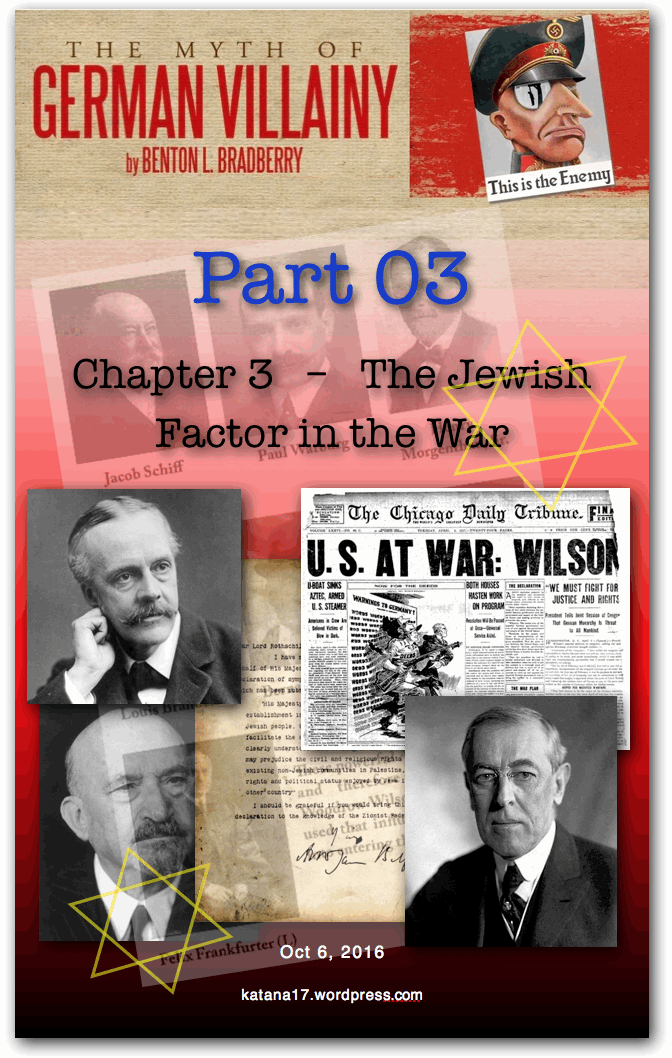
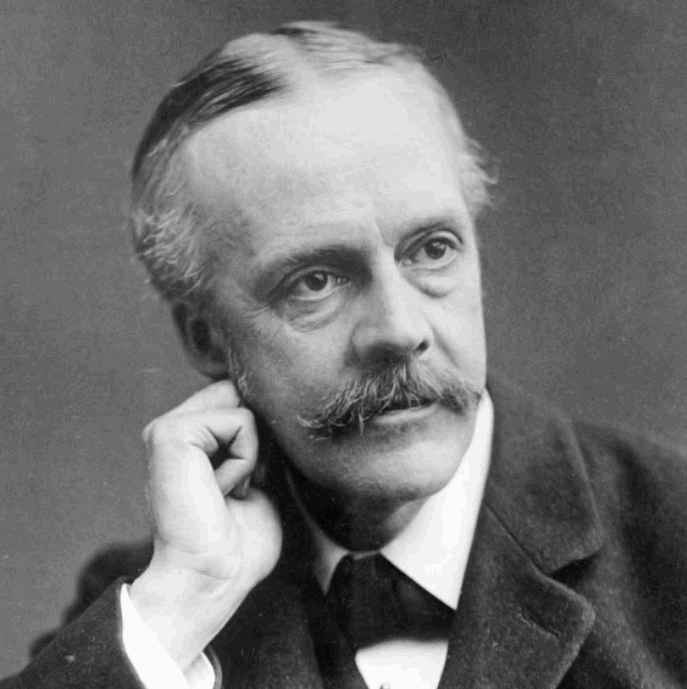

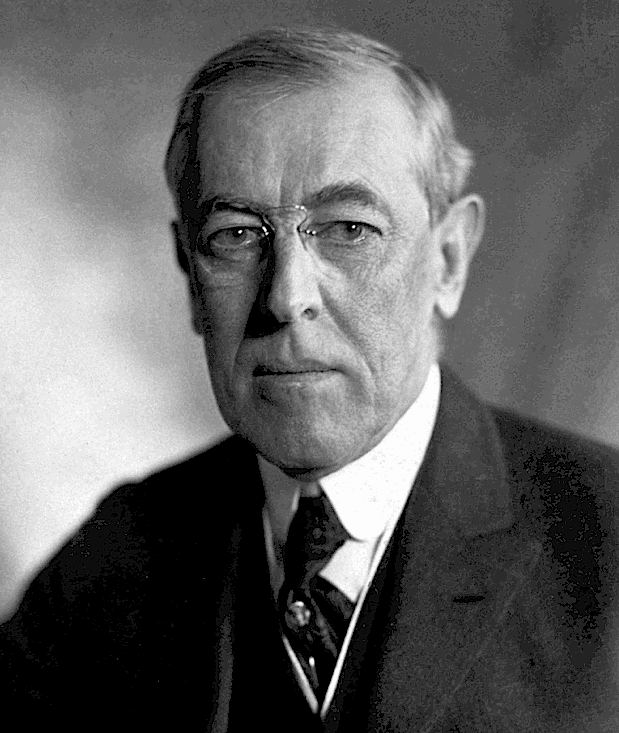
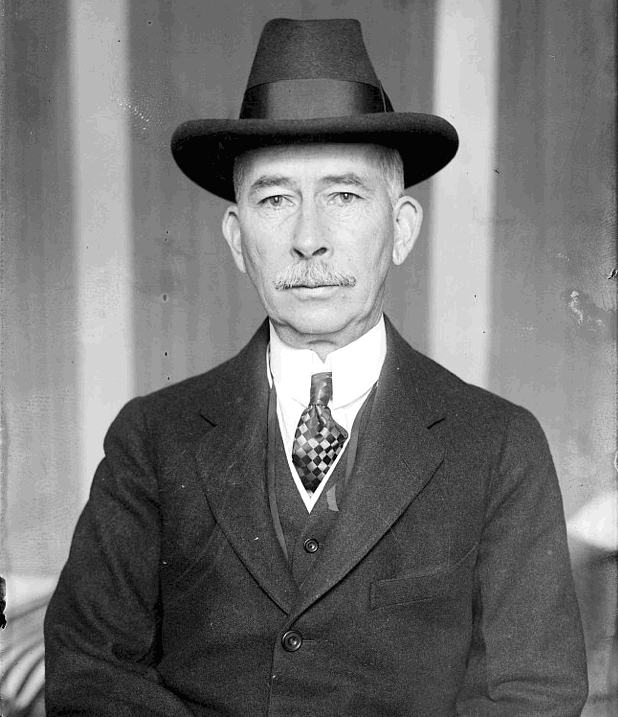

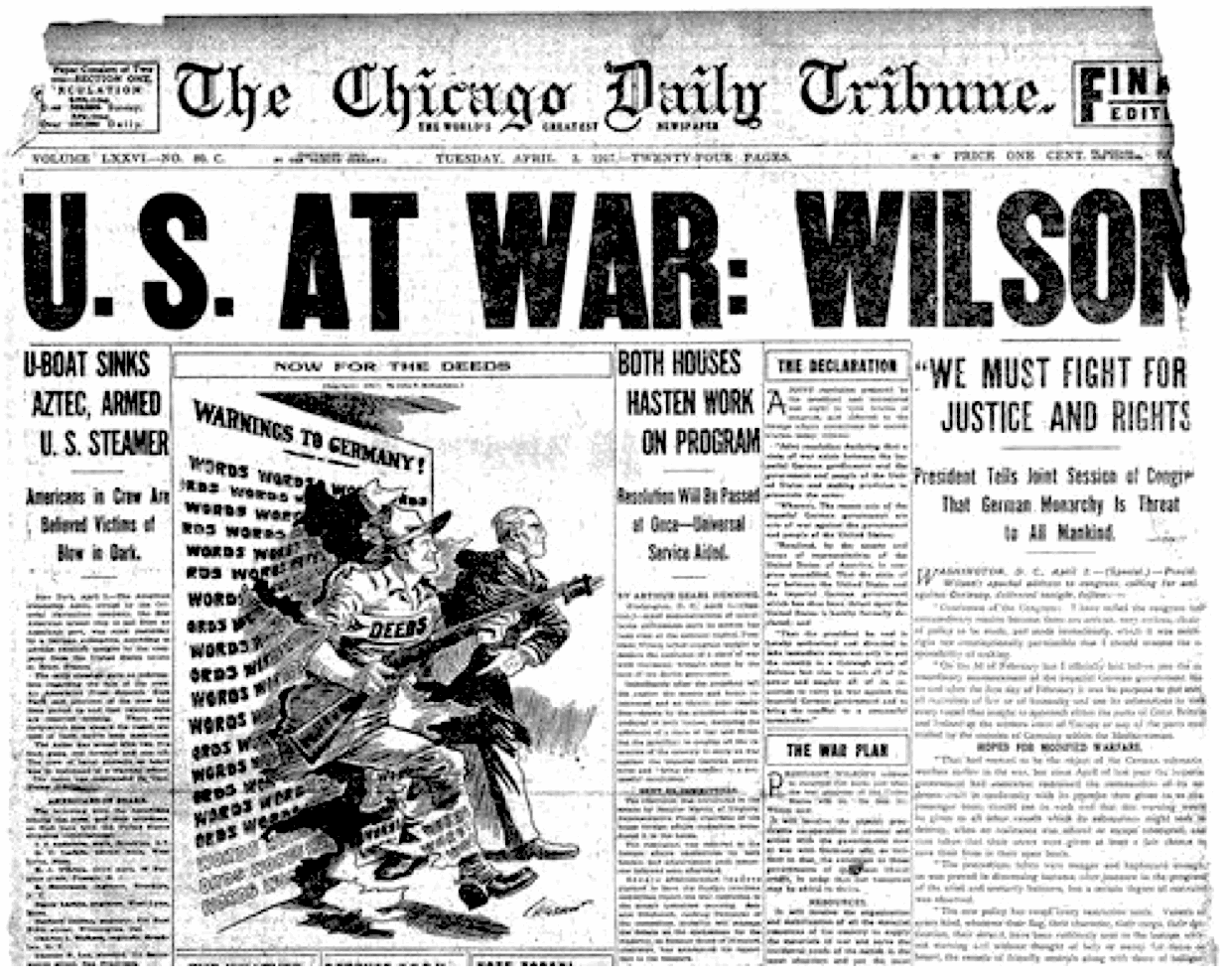
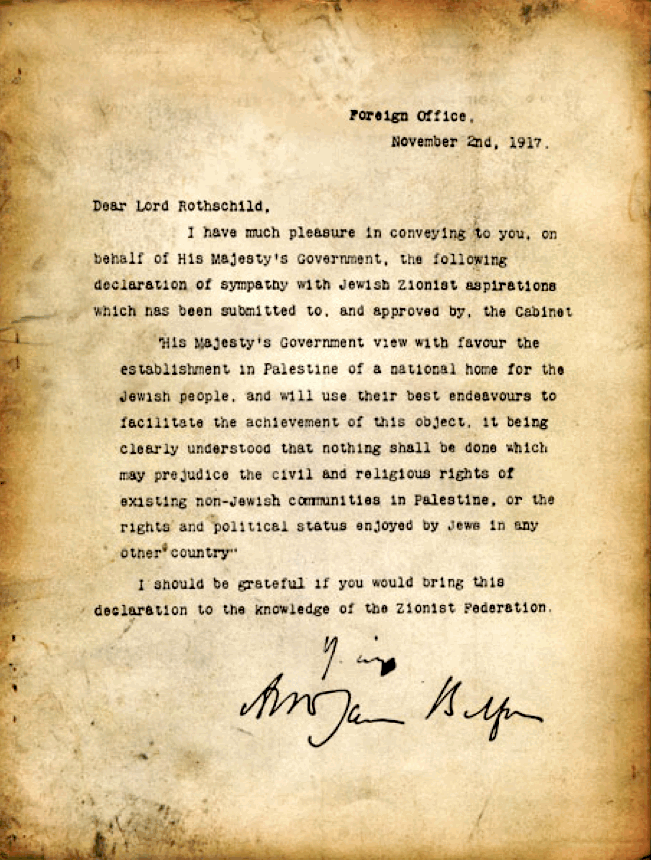
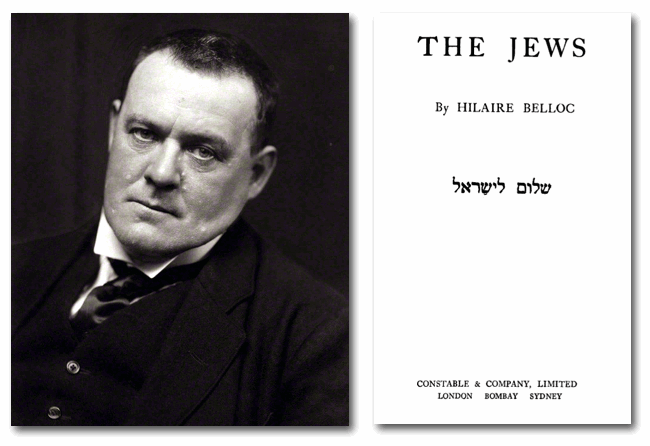

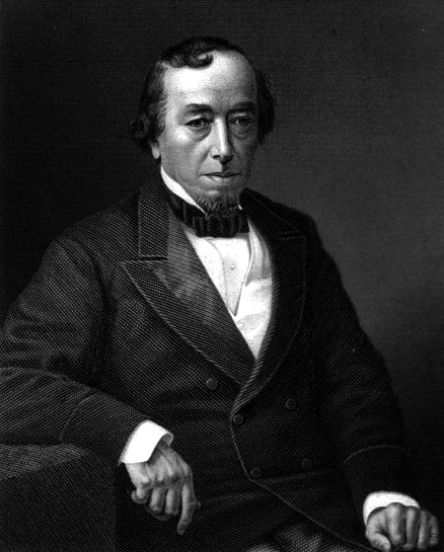

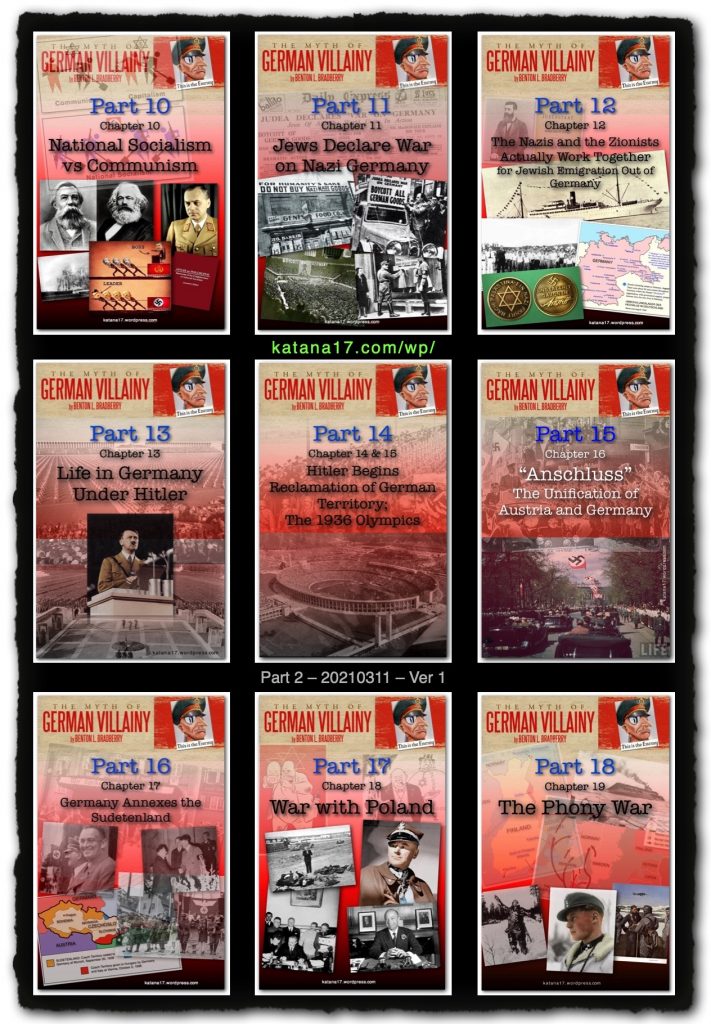
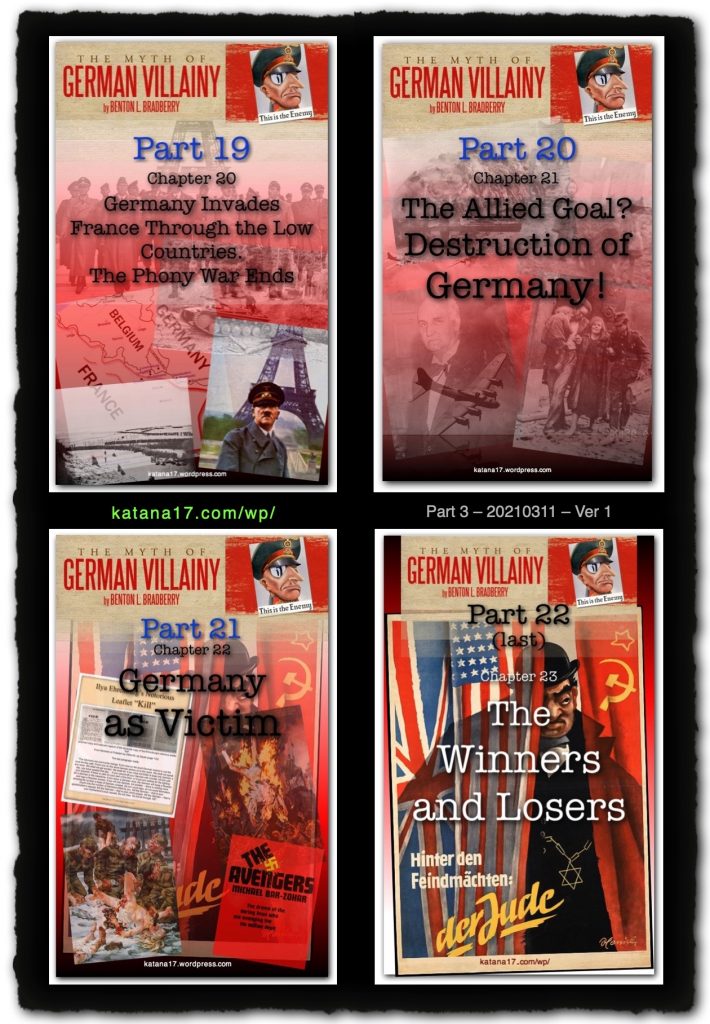
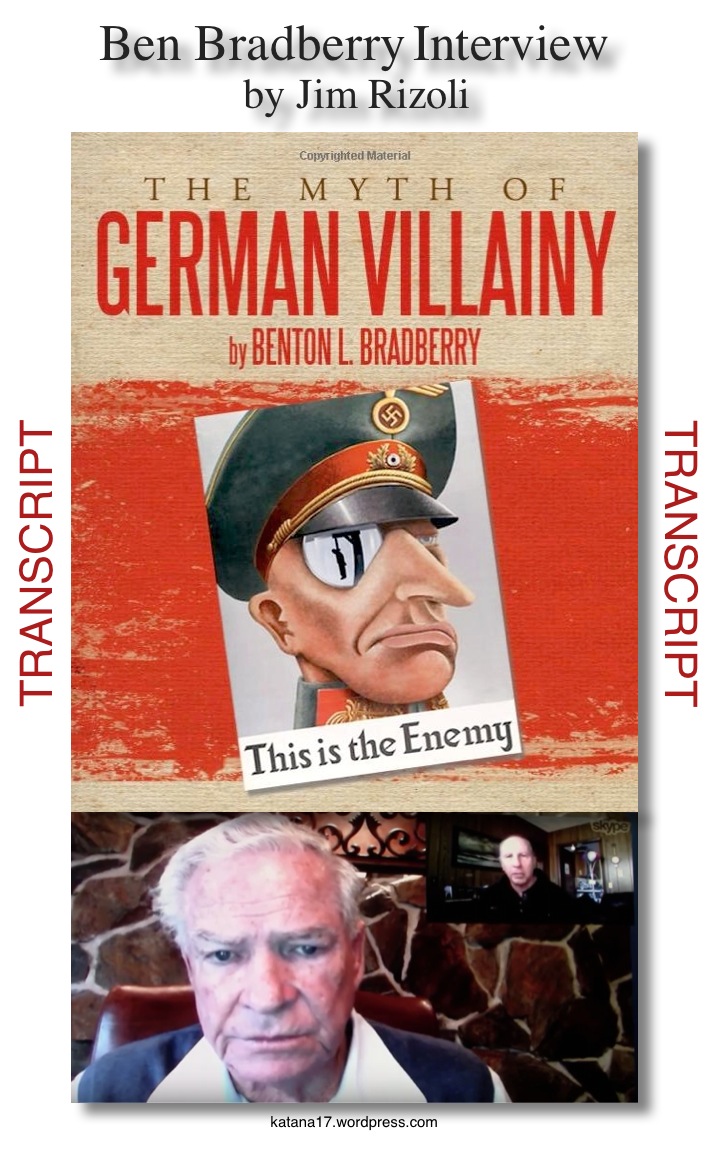
Pingback: World War I 1916: Britain and France conclude Sykes-Picot agreement – aladdinsmiraclelamp
Pingback: Book - The Myth of German Villainy - Part 08 - Jews in Weimar Germany - katana17katana17
Pingback: The Myth of German Villainy: Author Ben Bradberry Interview — TRANSCRIPT - katana17katana17
Pingback: Book - The Myth of German Villainy - Part 02 - Aftermath of the War in Germany - katana17katana17
Pingback: Book - The Myth of German Villainy - Part 05 - The Red Terror - katana17katana17
Pingback: Book - The Myth of German Villainy - Part 21 - Germany as Victim - katana17katana17
Pingback: Book - The Myth of German Villainy by Benton Bradberry - Part 01 - katana17katana17
Pingback: Book - The Myth of German Villainy - Part 16 - Germany Annexes the Sudetenland - katana17katana17
Pingback: Book - The Myth of German Villainy - Part 22 (last) - Winners and Losers - katana17katana17
Pingback: Book - The Myth of German Villainy - Part 04 - The Russian Revolution of 1917 - katana17katana17
Pingback: Book - The Myth of German Villainy - Part 06 - The Bolshevik Revolution Spreads throughout Europe - katana17katana17
Pingback: Book - The Myth of German Villainy - Part 07 - The Nation of Israel - katana17katana17
Pingback: Book – The Myth of German Villainy – Part 15 – “Anschluss” The Unification of Austria and Germany | katana17